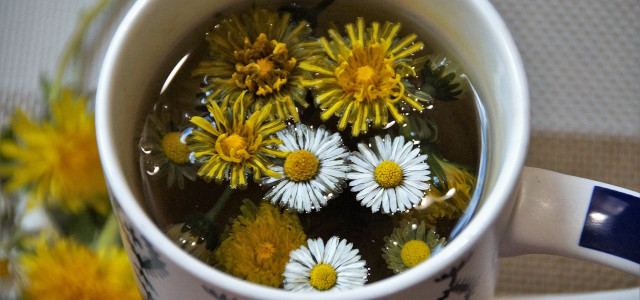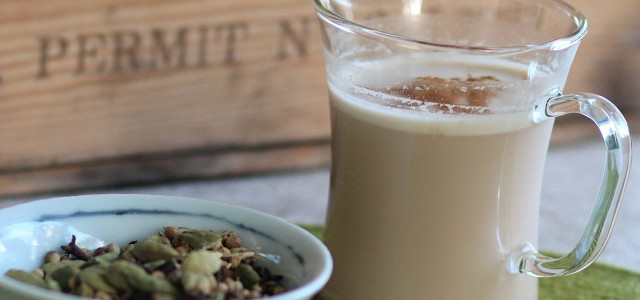Searching for a coffee substitute? Whether you’re worried about pesticides, long shipping routes, coffee farmer exploitation, or your health – learn all about regional coffee substitutes and the benefits of each one right here.
The Case for Choosing Coffee Substitutes
Many people around the world kickstart their day with a cup of Joe. However, as with many commonplace items we take for granted, we sometimes forget to take into account where our coffee comes from or the conditions needed for it to be produced.
Here’s some things to consider about the ecological, and arising moral implications involved with our morning coffees.
- CO2 Emissions: More than 70 countries cultivate coffee beans, with Brazil, Vietnam, Colombia, Indonesia, and Ethiopia producing the vast majority. It takes a long time for the coffee beans to travel by ship, plane, or truck before they reach the United States. Using this much fuel for everyday products results in a significant amount of CO2 emissions, an increasing worry as we strive to combat climate change.
- Pesticides and Other Pesky Problems: Coffee beans may contain pesticide residues that are harmful to human health. This also has adverse effects on the immediate environment in which the coffee is produced. Always buy organic coffee to avoid this. Labels like the USDA Organic guarantee that the coffee has been grown without synthetic pesticides or fertilizers. Some labels for fair trade, like the well-known Fairtrade-Label, also have rules on organic farming methods for their products.
- Farmer Exploitation: The coffee farmers in the producing countries face difficult working conditions and are often exploited for their labor. Unstable price volatility on the global market, plus climate change-related crop declines or failures, threaten their very existence and foster exploitation.
Health Risks and Regional Coffee Substitutes
On top of that, there are some health risks associated with copious coffee consumption as well, due to its high caffeine content. These include:
- Insomnia,
- Anxiousness, and restlessness,
- Stomach discomfort,
- Nausea,
- Higher heart and breathing rates,
- Momentarily elevated blood pressure
All things considered, it may be advantageous to limit your coffee consumption or perhaps abstain from coffee entirely in favor of coffee substitutes. Many of these are regional, and can even occasionally be brewed up by yourself.
1. Golden Milk: A Caffeine-Free Substitute for Coffee



(Foto: CC0 / Pixabay / Jessoraya)
The first caffeine-free coffee substitute on this list, Golden Milk is an ancient beverage that is said to have therapeutic, invigorating and purifying qualities. Typically, Golden Milk (sometimes known as a Turmeric Latte) is made by blending spices such as ginger, cinnamon, turmeric, and black pepper. Additional ingredients such as cardamom, vanilla, and honey, are also fairly common.
The turmeric in Golden Milk contains a substance called curcumin, which has many reported anti-inflammatory and antioxidant qualities.
2. Brewed Chicory: A Regional Coffee Substitute



(Foto: CC0 / Pixabay / fotoblend)
The chicory root, when brewed, has a flavor similar to regular coffee, but is devoid of caffeine and does not irritate the stomach. If you consume a lot of chicory root, it can help you increase the number of good bacteria in your digestive system because of its high inulin content, which can aid your metabolism. Owing to its high potassium content, the chicory root is an underrated source of energy.
Chicory grows wild in many areas of the US, and you can even grow it yourself in the garden and harvest it in late autumn. That makes it a great regional substitute for coffee. Thankfully, for those of us who don’t grow or pick our own herbs, chicory root can be bought pre-ground in many local health food stores. If you’d rather make it from scratch, get yourself some chicory roots and follow the steps below:
What you’ll need:
- Some chicory roots
- A coffee grinder
And here’s how to make the regional coffee substitute:
- Wash the chicory roots thoroughly. You can use a vegetable broth to remove even the last bit of soil.
- You don’t need to peel the root, but you do need to cut out any soft, mushy or brown parts.
- Dry the chicory roots with a clean dish cloth and allow them to air dry.
- Cut the roots down to coffee-bean sized bits and bake them for 90 minutes at 250°F.
- When they are brown and dry, remove them from the oven and let them cool off completely.
- Grind them as you would usually grind your coffee beans and use the resulting powder just like coffee powder.
3. A Less Acidic Coffee Substitute: Mushroom Coffee
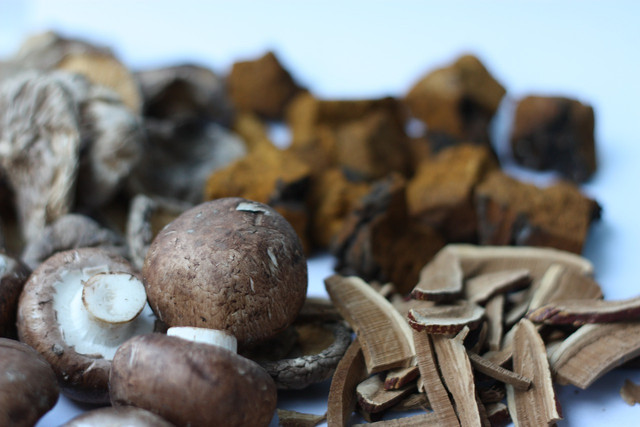


(Foto: CC0 / Pixabay / bluebirdprovisions)
An increasingly-popular coffee substitute with a reputation for tasting just like the real thing, mushroom coffee is reported to have a whole host of medical benefits for consumers on a health kick. You won’t have to worry about reflux or other stomach problems if you drink mushroom coffee instead of ordinary coffee, because it’s less acidic.
Instead of gourmet mushrooms like shiitake and portobello, medicinal mushroom extracts like chaga are used in most mushroom coffees. In the northeast of the US, you can find chaga mushrooms growing on birch trees, so you might even have a chance to find a locally sourced mushroom coffee.
4. Kombucha: Coffee Substitute That’s Good for Digestion



(Foto: CC0 / Pixabay / CookYourLife)
Kombucha tea, which is high in probiotics, is renowned for its ability to boost your immune system. The kombucha fungus ferments to produce microorganisms that are essential to the bacterial culture in the intestine. Because of this, kombucha tea may be the ideal coffee substitute for those with digestive issues.
Fermenting it yourself is possible, but comes with a bit of a risk if done incorrectly. Instead, you can buy kombucha tea in many organic markets, health food stores, and drugstores across the country.
5. Dandelion Tea



(Foto: CC0 / Pixabay / silviarita)
Dandelion tea has a distinct flavor that is somewhat sweet but rich, making it an excellent caffeine-free coffee substitute. This is a great regionally sourced alternative as dandelions are a remarkably versatile flower that can be found in many fields, parks, and gardens.
The health benefits of dandelions arise from the fact that they are rich in many vital minerals, such as calcium, iron, and vitamins A, C, and K. For an in-depth guide to dandelion tea, be sure to check out our feature on it:
6. Malt Coffee: When You Want the Taste of Coffee
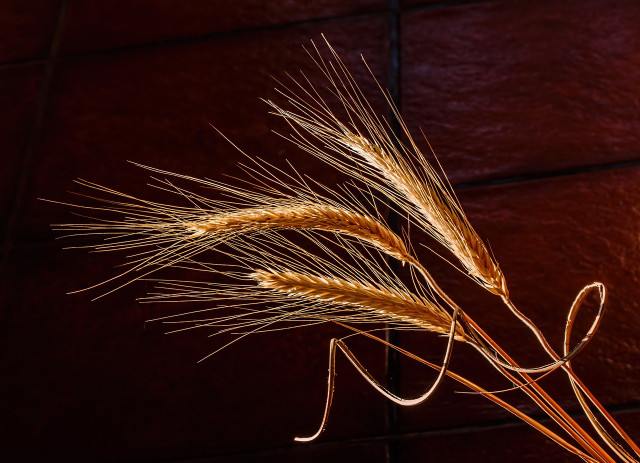


(Foto: CC0 / Pixabay / stevepb)
Malt barley is used to make malt coffee, which is created by allowing ripe barley grains to germinate in water. Enzymes transform some of the grain’s starch into malt sugar. After being dried and roasted, the grains are ready for consumption.
There’s a coffee-like flavor and color to the caramelized malt sugar after this process: Just bring a pot of water to a boil and add the easily soluble powder. This is a great caffeine-free coffee substitute that can be found in most supermarkets. Roasting your own malt coffee is an option, but requires a little more expertise and preparation.
7. Chestnut Coffee: A Cozy Fall Treat
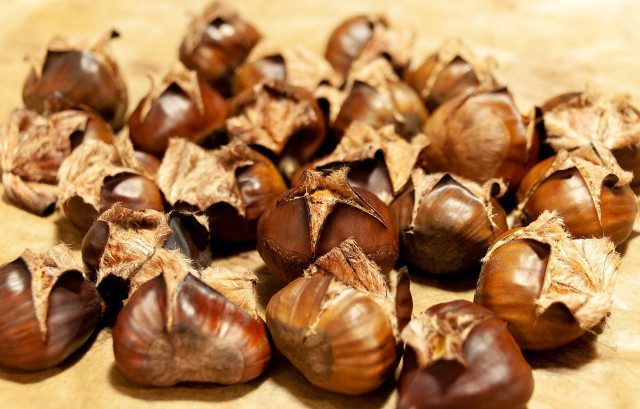


(Foto: CC0 / Pixabay / wal_172619)
Chestnuts are adored for being a cozy fall treat. Calcium, magnesium, B vitamins, and vitamin C are all included in these delectable nuts, which means they’re not just delicious but they have nutritional value, too.
To make chestnut coffee:
- Remove the thorny shells first.
- Bake the nuts at around 250°F until they are just beginning to brown. Avoid letting the chestnuts brown too much to prevent the formation of acrylamide.
- Once they’ve cooled, chop and grind the chestnuts into a fine powder.
- Apply boiling water to this powder, and stir thoroughly.
Viola! Now you can enjoy a nutty, somewhat sweet coffee substitute perfect for the colder seasons.
8. Lemon Water



(Foto: CC0 / Pixabay / JillWellington)
Lemons, which are high in antioxidants, are beneficial to your general health. Hot lemon water is an excellent coffee substitute because of the numerous health benefits of citrus fruit. According to some research, lemons may enhance the immune system, acting as a digestive aid and lower blood pressure.
Variety is the spice of life, and you may use whatever fruit or plant you choose to give your lemon water an extra kick, but cucumbers, mint, limes, and even basil are some of the most popular. Spices like ginger, which are high in nutrients, might make a great addition to this tried-and-true recipe.
9. Rooibos Tea: Another Aromatic Substitute for Coffee
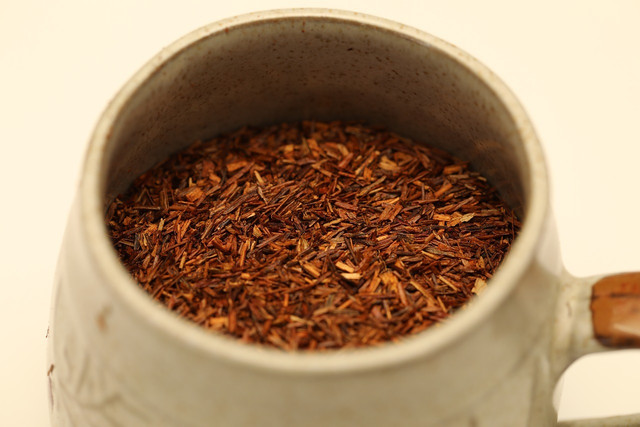


(Foto: CC0 / Pixabay / キヒロ)
Rooibos tea, also known as red bush tea and African red tea, is a wonderfully calming coffee substitute. Rooibos tea contains earthy undertones with a sweet flavor reminiscent of caramel, or vanilla. Rooibos tea is caffeine-free, making it a suitable coffee substitute to enjoy at any time of day.
An additional perk of Rooibos tea is that it also includes high quantities of vitamin C and strong antioxidants such as aspalathin, which aids your metabolism, as well as numerous other health advantages.
10. Coffee Substitute: Chai Tea



(Foto: CC0 / Pixabay / umehanayuuki)
Chai is a hearty black tea with a distinct flavor and aroma, often served with a swig of warm, ideally plant-based, milk. Spices like cardamom, cinnamon, ginger, and cloves are commonly used to enhance the flavor. Even though it is highly caffeinated, masala chai is still less caffeinated than a cup of coffee.
Like many other black teas, it has been found that chai tea can improve attention and alertness. Other research suggests that drinking chai tea may improve cardiovascular health and help with weight loss as well as lower blood sugar (thanks to the cinnamon) and it can even promote digestion (thanks to the ginger).
However, keep in mind that the healthiest tea is one with only a small amount of sugar added.
Ethical Concerns Surrounding Tea as Coffee Substitutes



(Foto: CC0 / Pixabay / GregMontani)
Before we wrap up this post, we’d want to discuss the delicate relationship between coffee substitutes and ethical and ecological sustainability.
Tragically, the tea industry is tainted by exploitation and human trafficking. The tea industry’s exploitation is complex and dependent on existing inequalities and economic structures, leaving many vulnerable to trafficking and modern-day slavery.
On top of that, the demand for tea can also be detrimental to the environment. The demand for popular tea and coffee substitutes can strike a poor ecological balance, as some kinds of tea and fruits have to travel a long distance to us, which leads to further pollution.
So, what to do?
- Educate yourself further on the issue.
- Only buy tea from ethical producers who pay a living wage and treat their employees well.
- To combat exploitation, look for Fair Trade or Rainforest Alliance labels on any tea packaging, or fruits that you find.
- Prioritize coffee substitutes that can be made closer to home and American produce. For instance, mushroom and chicory coffee can both be made here in the US.
Read on:
- 7 Sustainable Home and Garden Uses for Coffee Grounds
- How to Get Caffeine out of Your System With Natural Remedies
- Is Decaf Coffee Bad for You? Facts and Myths
Do you like this post?






